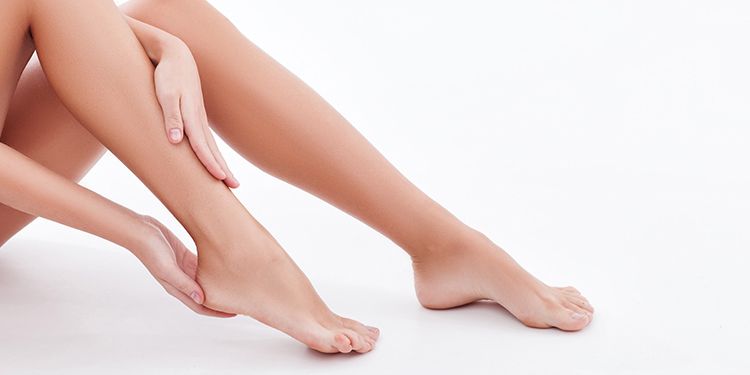How to Stop Sweaty Hands and Feet: Top Dermatology Treatments for Excessive Sweating
How to Stop Sweaty Hands and Feet: Top Dermatology Treatments for Excessive Sweating
Blog Article
Understanding the Origin Reasons of Excessive Sweating and Its Impact on Life
While it is commonly recognized as a physical feedback to manage body temperature, the triggers for excessive sweating can vary extensively amongst people, including not only physical variables yet likewise emotional and emotional components. By delving into the origin triggers of hyperhidrosis and discovering its complex impacts, a deeper understanding of this prevalent issue can be obtained, dropping light on the complexities that people grappling with extreme sweating navigate on a day-to-day basis.
Physiology of Sweat Glands
The policy of sweat production, a crucial physical process, is largely managed by the task of sweat glands dispersed across the body. Sweat glands are classified into 2 primary kinds: eccrine and apocrine glands. Eccrine glands are the most countless and are discovered in mostly all areas of the body. They play a vital function in thermoregulation by producing a watery fluid onto the skin's surface area, which helps and vaporizes cool down the body down. In contrast, apocrine glands are focused in areas rich in hair roots, such as the armpits and groin, and their secretions are thicker and milky in look.
When the body temperature increases, either due to physical activity, high temperatures, or psychological stress, the anxious system causes the sweat glands to produce sweat. This sweat is made up largely of water and electrolytes like sodium and chloride. The process of sweat production is crucial for maintaining the body's internal temperature within a slim, optimum range, highlighting the crucial function gland play in human physiology.
Triggers for Excessive Sweating
In understanding the origin triggers of excessive sweating, it is critical to recognize the triggers that can lead to this physiological response. Physical physical effort, high temperatures, and spicy foods are also understood to set off too much sweating in people prone to this problem.
Additionally, medications such as some antidepressants, opioids, and specific supplements can also work as triggers for hyperhidrosis. Comprehending these triggers is essential in taking care of excessive sweating properly - Treatment for hyperhydrosis of hands and feet. By determining and addressing the certain triggers that prompt extreme sweating in an individual, doctor can create personalized therapy strategies to minimize this problem and improve the person's lifestyle
Medical Conditions Associated
Connected with excessive sweating are different clinical problems that can intensify this physical feedback. One common problem is hyperhidrosis, a problem characterized by unusually boosted sweating that exceeds the body's thermoregulatory needs. This can materialize in focal locations like the hands, soles, underarms, or face, impacting an individual's high quality of life as a result of social embarrassment and discomfort.
Moreover, endocrine conditions such as hyperthyroidism, diabetes, and menopausal hot flashes can additionally lead to extreme sweating. Hyperthyroidism triggers an overproduction of thyroid hormonal agents, speeding up metabolic process and setting off sweating.
Moreover, infections like tuberculosis, Exessive Sweating endocarditis, and hiv have actually been related to night sweats, an usual sign known to interfere her explanation with sleep and influence general well-being. These clinical conditions highlight the varied variety of underlying factors that can add to excessive sweating, demanding complete assessment and monitoring by health care professionals.
Mental and emotional Aspects

Influence On Social Communications
Excessive sweating can have profound results on an individual's capacity to engage easily in social interactions. The visible indicators of sweat stains or damp spots on clothes can cause embarrassment and self-consciousness, triggering people to withdraw from social circumstances. This withdrawal can influence relationships, limitation social tasks, and hinder personal and specialist development.

Moreover, the anxiety and self-confidence issues originating from extreme sweating can affect interaction and social abilities. People may have a hard time to concentrate on conversations, join group tasks, or express themselves with confidence. This can lead to feelings of seclusion and solitude, as social links become challenging to preserve.
Verdict

While it is typically understood as a physiological response to useful content manage body temperature, the triggers for excessive sweating can vary extensively among people, including not just physical aspects but mental and also psychological aspects. By delving into the root triggers of hyperhidrosis and exploring its multifaceted effects, a deeper understanding of this prevalent problem can be gotten, dropping light on the complexities that individuals grappling with too much sweating browse on a day-to-day basis.
Physical physical effort, high temperature levels, and spicy foods are likewise recognized to activate excessive sweating in individuals vulnerable to this condition. By recognizing and attending to the particular triggers that motivate extreme sweating in a specific, health care companies can create individualized treatment plans to alleviate this problem and enhance the person's high quality of life.
Too much sweating can have profound results on an individual's capacity to engage easily in social communications.
Report this page